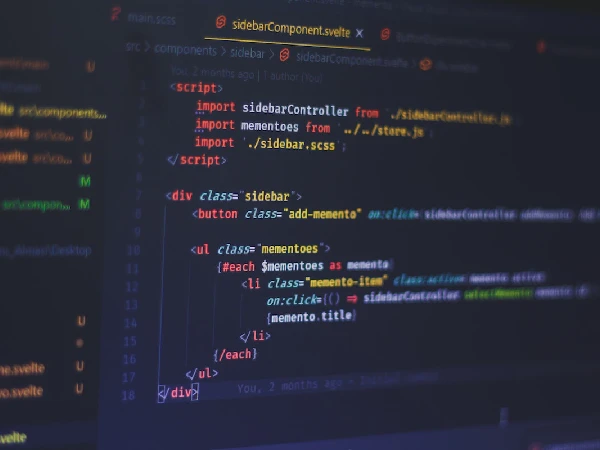In our increasingly digitized world, programming and coding have emerged as foundational skills that drive innovation, shape industries, and power the technologies we use daily. From the software that runs our smartphones to the algorithms that fuel artificial intelligence, programming and coding are at the heart of technological progress. In this article, we delve into the world of programming and coding, exploring their significance, evolution, and the endless possibilities they unlock.
The Essence of Programming and Coding
At its core, programming is the process of instructing a computer to perform a specific task or set of tasks. These instructions are written in a programming language, which serves as a bridge between human logic and machine execution. Coding, on the other hand, is the act of writing these instructions—lines of code—that tell the computer what to do.
Programming languages come in various forms, from low-level languages that interact closely with computer hardware to high-level languages that abstract many of the technical details, making it easier for humans to communicate with machines. Some popular programming languages include Python, Java, C++, and JavaScript, each with its own strengths and areas of application.
The Role of Programming in Today’s World
Programming and coding are pervasive in our lives, often operating behind the scenes. Here are some key areas where programming plays a vital role:
- Software Development: Programmers create the applications and software that power our computers, smartphones, and smart devices. This includes everything from mobile apps to operating systems.
- Web Development: Websites and web applications are built using programming languages like HTML, CSS, and JavaScript. Web developers design and code the interactive experiences we encounter online.
- Data Science and Analytics: Data scientists use programming languages to analyze large datasets, extract valuable insights, and develop predictive models. Python and R are particularly popular in this field.
- Artificial Intelligence and Machine Learning: AI and machine learning algorithms rely heavily on programming. Python and TensorFlow are commonly used to build and train models for tasks like image recognition and natural language processing.
- Robotics and Automation: Programmers write code to control robots and automated systems in manufacturing, healthcare, and other industries.
- Game Development: Game developers use programming languages to create the interactive worlds and gameplay experiences that captivate gamers.
- Cybersecurity: Ethical hackers and security experts use coding skills to identify vulnerabilities in software and networks, ultimately strengthening digital defenses.
The Evolution of Programming and Coding
The field of programming has evolved significantly since the early days of computing. Here are some key milestones in its development:
- Machine Code and Assembly Language: Early computers required programmers to write code in machine language, consisting of binary instructions. Assembly language provided a more human-readable form of machine code, simplifying programming to some extent.
- High-Level Languages: The advent of high-level programming languages like Fortran and COBOL in the 1950s allowed programmers to write code using more natural language constructs. This made programming more accessible to a broader range of people.
- Object-Oriented Programming: The concept of object-oriented programming (OOP) introduced the idea of organizing code into reusable and modular components, enhancing code maintainability and scalability. Languages like C++ and Java popularized OOP.
- Web Development Boom: With the rise of the internet, web development became a prominent field. HTML, CSS, and JavaScript emerged as the fundamental languages for building websites and web applications.
- Open Source and Collaboration: The open-source movement led to the development of vast communities of programmers who collaborate on projects and share code freely. This spirit of collaboration has accelerated innovation in programming.
- Modern Languages and Frameworks: Today, modern programming languages like Python, Ruby, and Swift, along with robust frameworks and libraries, enable developers to create powerful, efficient, and user-friendly applications.
Learning and Mastering Programming and Coding
Learning to program can be both challenging and rewarding. Here are some tips for those embarking on their programming journey:
- Choose a Language: Start with a programming language that aligns with your goals and interests. Python is an excellent choice for beginners due to its readability and versatility.
- Practice Regularly: Programming is a skill that improves with practice. Code regularly, tackle small projects, and gradually work your way up to more complex tasks.
- Learn Data Structures and Algorithms: Understanding data structures and algorithms is crucial for efficient and effective coding. These concepts are universal and apply across many programming languages.
- Collaborate and Seek Help: Join coding communities and forums, ask questions, and seek help when you’re stuck. Collaboration with others can provide valuable insights and support.
- Stay Informed: The tech industry evolves rapidly, so stay up to date with the latest trends and developments in programming and coding.
Programming and coding are not just technical skills; they empower individuals to innovate, problem-solve, and create solutions to real-world challenges. Whether you aspire to become a software developer, data scientist, or simply want to automate routine tasks, the world of programming and coding is open to all who are willing to explore its endless possibilities.

